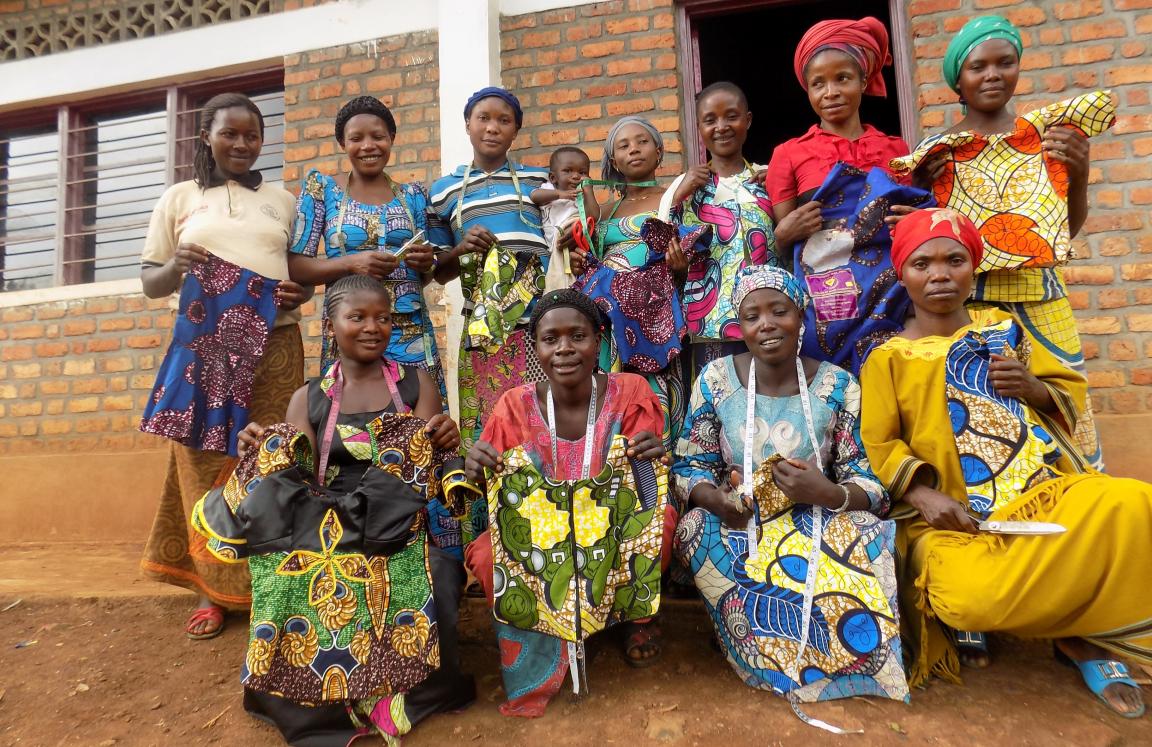
Violence and Economic Exclusion of Marginalized and Targeted Women
- In response to addressing this phenomenon, AA DRC in collaboration with CONAFED, a local partner, has trained hundred (60 females, 40 males) peer educators between the ages of 16 to 22 years in the Kisenso Commune of the Kinshasa Province to support young people, especially women, understand their right to a violence-free life, challenge normalisation of violence and demand gender responsive public services.
The peer educators were taken through sessions with specific focus on gender equality, patriarchy, human and women’s rights, safe cities for women and girls, sexual and reproductive health rights, norms of masculinity, social and traditional norm, Violence Against Women and Girls (VAWG) and transformative feminist leadership. The peer educators received mentoring and coaching support from AA DRC and its partners and are leading in various initiatives in the communities. They are working in collaboration with the Kisenso Commune, Police National of Congo and other law enforcement agencies and public service providers in Kisenso. They held sessions in their various localities and campaigned for the elimination of SGBV as well as the safety and security for women in Kisenso. The young advocates also provided new insights in the complexity of violence against women and girls in terms of scale, scope, and the nature of the problem, variation across and within the target areas of Kisenso, women’s experiences and men’s perpetration of different forms of violence and the underlying drivers, risk and protective factors that influence the occurrence of VAWG.
- In order to ensure effective community level engagement and conversations, Community Based Volunteers and Par Legals were provided with bicycles to address their transportation needs, These volunteers and Para Legals at times have to travel long distances to record cases or support survivors of SGBV. 120 bicycles have therefore being provided. Some of the volunteers who by themselves are IDPs lost their belongings including bicycles in the war.
It’s greatly going to reduce a lot of burden on us since we could also use it for our household chores including collecting water and fuel wood. This support has also changed the rule of bicycle ownership in the localities by female. Bicycles have always been owned by men : revealed one of overwhelmed female volunteers who received the bicycles.
The police and territorial administration were also supported with lap tops and android phones to facilitate transmission and analysis of data for effective response.
- The training built capacity of 200 men from 40 localities in the 5 territories on SGBV, mens role as champions against SGBV, customs and traditions that perpetuate SGBV, policy and legal framework on SGBV and dimensions of SGBV in emergencies.
The platform representatives developed Community Action Plans in collaboration with actors like Ant-Violence and Protection Volunteers, Para legals and Police to campaign against SGBV. They also did a stakeholder mapping to establish who is doing what to ensure complete prevention and response including case management and access to justice.
Mr TSHIBALA MUKUNA Andre, an IDP living in Kabeya Kamwanga territory wishes to have Kabiya Kamuanga as a center of excellence for men campaign against SGBV. He revealed this after going through initial training of becoming a member of the Men Platform against SGBV.
Mr. Tshibala also testified that he knows someone from the village who is HIV positive and is infecting girls in the village. ‘’This training and formation of the platform has awaken us and organize to sermon this person and take necessary action to protect our people who are already in a distressed situation